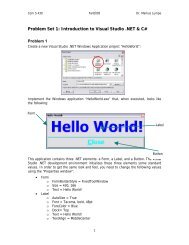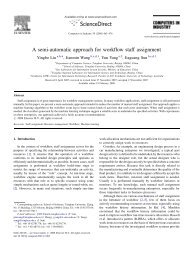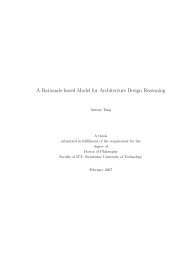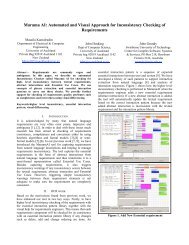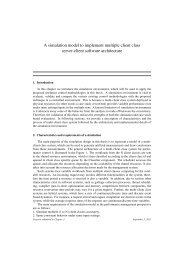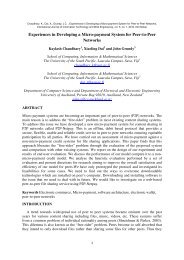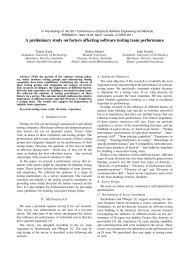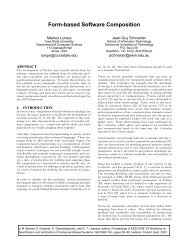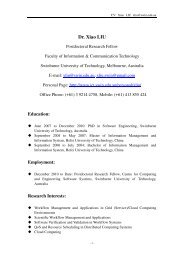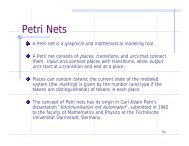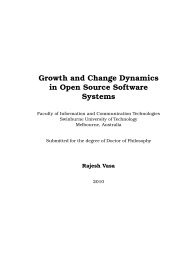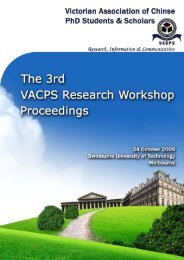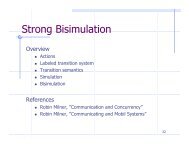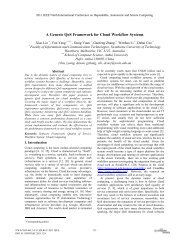Xiao Liu PhD Thesis.pdf - Faculty of Information and Communication ...
Xiao Liu PhD Thesis.pdf - Faculty of Information and Communication ...
Xiao Liu PhD Thesis.pdf - Faculty of Information and Communication ...
You also want an ePaper? Increase the reach of your titles
YUMPU automatically turns print PDFs into web optimized ePapers that Google loves.
Component 2, the state <strong>of</strong> scientific cloud workflow execution towards specific<br />
temporal constraints, i.e. temporal consistency, is monitored constantly with the<br />
following two steps: first, a minimum probability time redundancy based temporal<br />
checkpoint selection strategy determines the workflow activities where potential<br />
temporal violations take place; second, according to the probability based temporal<br />
consistency model, temporal verification is conducted on the selected checkpoints to<br />
check the current temporal consistency states <strong>and</strong> the type <strong>of</strong> temporal violations. In<br />
Component 3, detected temporal violations are h<strong>and</strong>led with the following two steps:<br />
first, an adaptive temporal violation h<strong>and</strong>ling point selection strategy decides<br />
whether a temporal checkpoint should be selected as a temporal violation h<strong>and</strong>ling<br />
point to trigger temporal violation h<strong>and</strong>ling strategies; Second, at temporal violation<br />
h<strong>and</strong>ling points, different temporal violation h<strong>and</strong>ling strategies are executed<br />
accordingly to tackle different types <strong>of</strong> temporal violations. In our temporal<br />
framework, we focus on metaheuristics based workflow rescheduling strategies for<br />
h<strong>and</strong>ling statistically recoverable temporal violations.<br />
The major contributions <strong>of</strong> this research are that we have proposed a novel<br />
comprehensive temporal framework which consists <strong>of</strong> a set <strong>of</strong> new concepts,<br />
innovative strategies <strong>and</strong> algorithms for supporting time-constrained scientific<br />
applications over their whole lifecycles in cloud workflow systems. With these, we<br />
can significantly reduce the cost for detection <strong>and</strong> h<strong>and</strong>ling <strong>of</strong> temporal violations<br />
whilst delivering high temporal QoS in scientific cloud workflow systems. This<br />
would eventually improve the overall performance <strong>and</strong> usability <strong>of</strong> cloud workflow<br />
systems because a temporal framework can be viewed as a s<strong>of</strong>tware service for<br />
cloud workflow systems. Consequently, by deploying the new concepts, innovative<br />
strategies <strong>and</strong> algorithms, scientific cloud workflow systems would be able to better<br />
support large-scale sophisticated e-science applications in the context <strong>of</strong> cloud<br />
economy.<br />
VI



